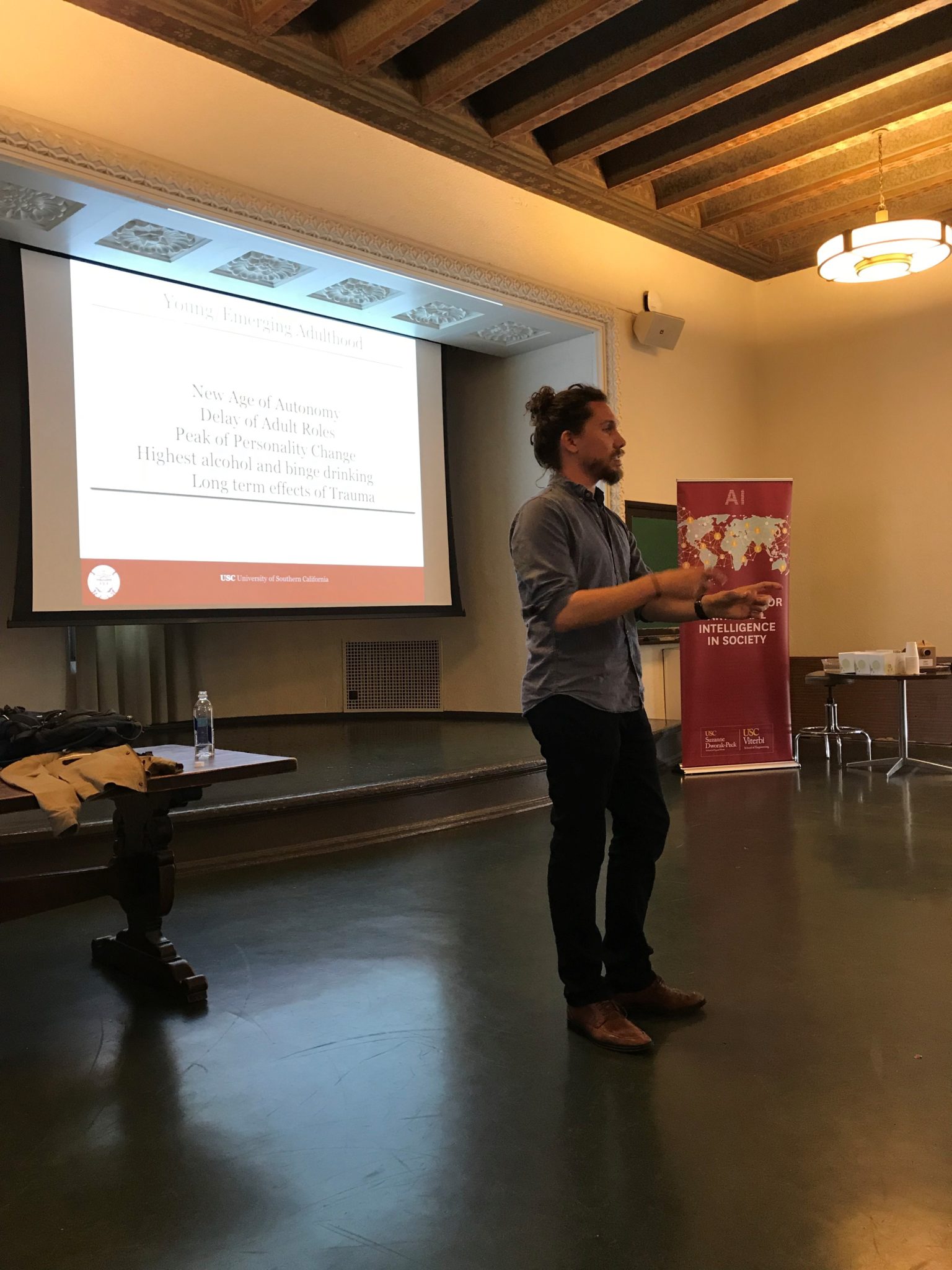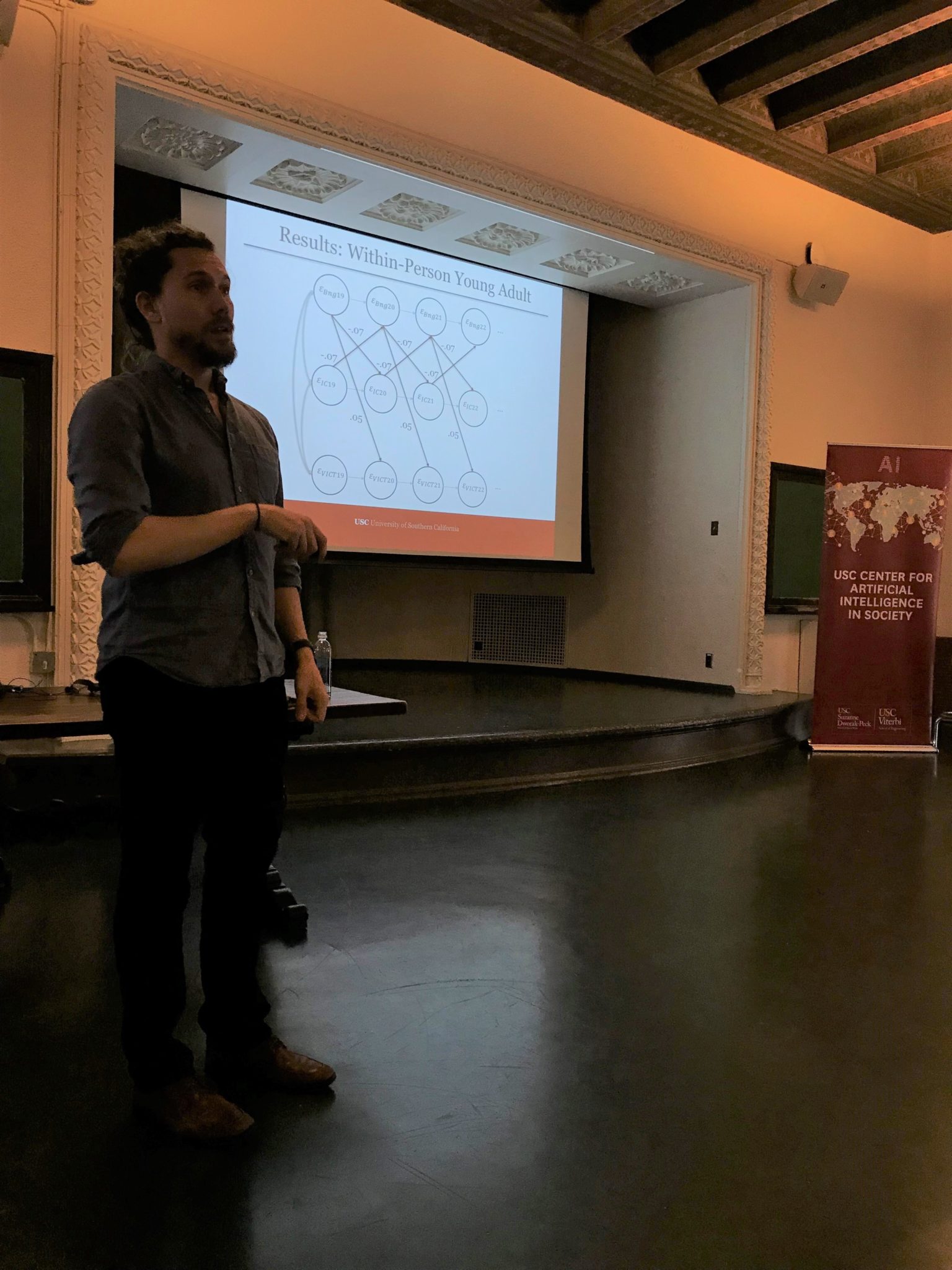
Dr. Jordan Davis speaking at the USC CAIS seminar on April 25, 2018.
Dr. Jordan Davis of the USC Suzanne Dworak-Peck School of Social Work discussed his research on understanding the developmental processes of substance use among at-risk youth. He discussed the manner in which exposure to different types of violence have the potential to influence regulatory systems (i.e. impulse control which can lead to risky behaviors). Adolescence is a developmentally vital stage in terms of factors such as autonomy and level of risk for long term substance use related issues. Dr. Davis’ research is centered around the optimal time to intervene with these individuals who are at risk for long-term substance abuse.
Dr. Davis noted the additional risk factors of youth in marginalized populations such as youth in the juvenile justice system. These youth are five times more likely to use alcohol, three times more likely to have a substance use disorder, have lower impulse control, and experience a 30% higher rate of traumatic stress. Additionally, youth who have experienced early childhood or early adolescent poly-victimization, victimization from one or more source or person, had above average binge drinking trajectories. The overall question posed to address these at-risk populations is whether or not AI can be used to implement interventions in real time to combat relapse for these youth. The relapse rate is high, with between 50-70% within the first 90 days of being released from residential Substance Use Disorder (SUD) treatment. Similarly, can AI be used to identify characteristics related to post-treatment trajectories (i.e.the likelihood of success)? These issues are especially vital as certain factors, such as personality type and relationship satisfaction have been linked as huge predictors of substance use.

Dr. Davis also discussed his research involving mindfulness based relapse prevention. This project looked at the way in which mindfulness could be used to combat stress, coping, and days of use in a randomized controlled trial. The study, which followed participants for six months, utilized a mindfulness intervention to deliver Cognitive Behavioral Therapy (CBT) in two week intervals. The results of this study indicated a decrease in substance use, stress, and cravings for individuals assigned to this intervention in comparison to those who received the usual treatment methods. Dr. Davis is currently working on projects ranging from the Mobile Mindfulness intervention, which looks at factors of prediction and decision making, to Neighborhood Violence exposure. These projects are aimed at the intersection of AI to further combat youth risk factors with issues such as substance use and violence.



